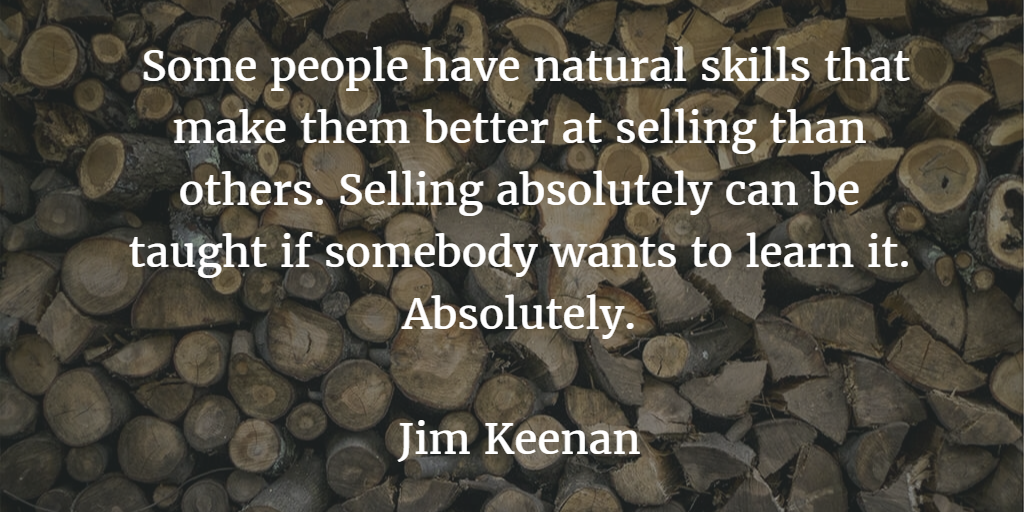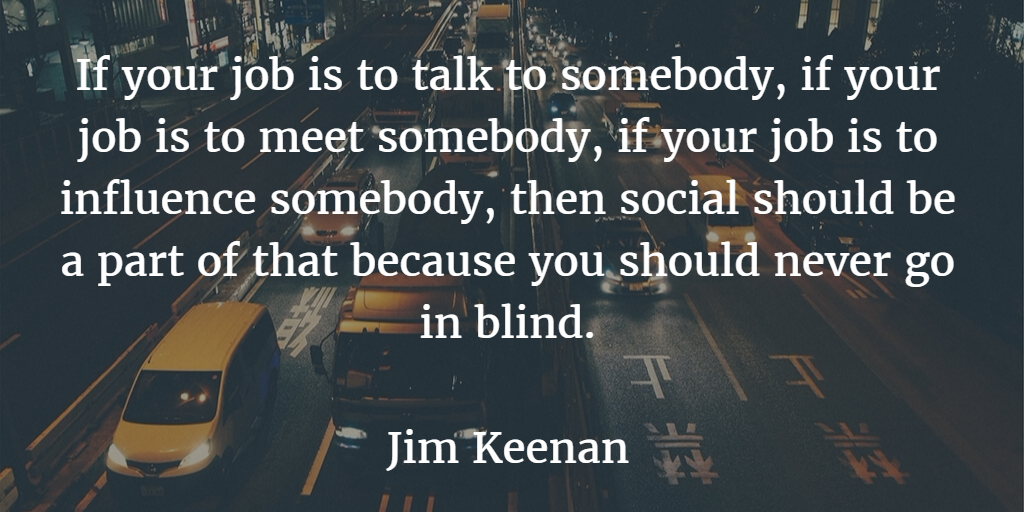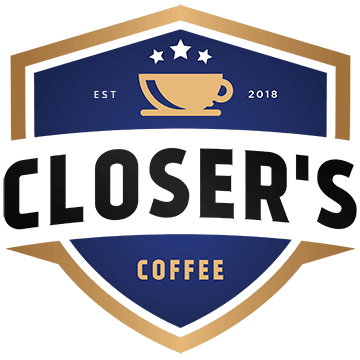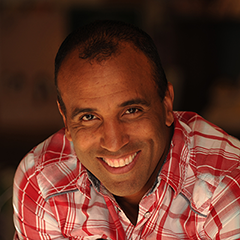Recently, I had the marvelous opportunity to interview sales consultant Jim Keenan of asalesguy.com. Along with a killer personality and wild charisma, he was full of wisdom on how sales reps can step up their game. Here are the latest and greatest tips from Keenan:
Be Open to Learning
“Everybody has a talent right? Most people don’t know this and I didn’t know this either, but you can actually teach people how to sing. Some people just have a natural talent for it. It doesn’t mean that someone who is not a natural talent can’t sing. It just means they might not be the best singer in the world, but they can sing in a band. They can sing in the Sunday choir, and shoot I’ve seen some famous people! They may even be able to cut a record! The same is true with sales people. Some people have natural skills that make them better at selling than others. Selling absolutely can be taught if somebody wants to learn it. Absolutely. I think some of the best salespeople would be consultants, like business analysts. Their job is to go in and say ‘well tell me about your business. What happens when you do this and what happens if you do that? When you plug this in, what does that do? How does that affect this and if that comes out there then what happens here?’ They have all these business questions and they dig around and say, ‘Here’s your problem!’ So rather than saying ‘We can come in and solve it,’ they [could] be saying ‘This product will fix it for you here’s how!’ There’s a sales person right there!”

Focus on the Client’s Business Problem
“[M]ore often than not, sales people will stop selling the product and [instead] tell them all the functions and features of the product, why it’s a good product or why the customer needs it.”
This is how Keenan describes it playing out:
Keenan: What’s the problem?
Client: What do you mean?
K: What problem are you solving?
Client: Well, they’re inefficient. (Well no. That’s not a business problem.)
K: What happens when they’re inefficient?
Client: They can’t get things done.
K: Describe inefficient.
“They can’t do any of that [on their own] and then they wonder why they’re losing sales or they wonder why it’s stalled. Well because they’re not selling to the business problem so the value is diminishing. We always have to get them to back away from the product and away from the customers who are saying “yes I am interested and yes I want it” and to why do you want it and why should the customer have it? What business problem does it solve? What’s the impact of those business problems?”
Practice Social Selling
“If your job is to connect with somebody then social selling should be [priority]… If your job is to talk to somebody, if your job is to meet somebody, if your job is to influence somebody, then social should be a part of that because you should never go in blind. [Y]ou should know who they are, what’s important to them, what they’re doing, [and] how you can affect them.”

Develop Your Deal Strategies
“Show me a deal that is going to close this month. The biggest one or the one that you think is most important. What’s your deal strategy? [Salespeople] will look at you cross-eyed. Then they might say, ‘Well what do you mean, ‘deal strategy?’
‘Well how are you going to close it?’
‘Well we’ve done this and this and this and I’m just waiting on this so I’m going to call them next week and I should have this by then.’
So it’s all reactive they’re just either going to call somebody or they’re waiting for the client to do something. They haven’t actually looked at what’s going on and said, ‘Here’s my deal strategy. Here’s the strategy that I’m going to execute to ensure that I get this closed based on the landscape of that particular buyer.’ A deal strategy is your strategic plan to get that deal closed. So here’s an example, I had a client. One of their sales reps lost a deal. The COO wanted the product, all of the people wanted the product. The executive director didn’t. In this scenario, the Executive Director was a lot like the CEO. She didn’t think it was the right time. She said she had too many things going on. She was concerned about the impact on the organization during their busy season. So he said, ‘Look I have a great relationship with the COO, and he wants it, so this is what I think I’m going to do. My strategy is I’m going to put together a survey that surveys their existing system and the impact that it has on the organization. I’m going to ask him if he will give it to his team and based on the results, we’ll give it to the Executive Director, and show her how important it is they change.’ That’s a strategy. And by the way it worked and now she’s deciding on the system. The strategy says, ‘How do I get to the close based on the hurdles and the objectives and the objections that I have facing me right now?’”
Technology MUST Work With Sales Reps’ Process
“I don’t really let companies get too worked up over technology right? I don’t really care what you use […] I really don’t care. What I do make sure though is that you choose something that makes sense for your organization, and that you build a process around it to actually get what you want out of it. If you’re not going to build a process [to the extent] that it gets embedded into your workflow, and that it makes sense, then don’t buy it! Just don’t buy it. But if [they’re] going to buy it, I make sure that they understand why they’re buying it, the returns they’re looking for and how it’s going to affect their processes. Notice I didn’t say tools. Tools to me are part of process. Tools is not a process in my world. All a tool does is enhances an existing process. For putting in a nail, a nailgun works great for putting shingles on your roof or framing. It doesn’t work too well when you’re trying to do interior finishwork. That’s a process issue.”
What Makes Jim Keenan Different:
“I don’t hold back. So you know I don’t soften the blow. If your sales team sucks I’m going to tell you. If your sales strategy sucks I’m going to tell you. If your sales process sucks I’m going to tell you. And so you get just unadulterated, unfettered, straight up honesty with me. I think another thing that makes me really different is the casual, informal, nature. I don’t wear a suit. I don’t put [40-slide] powerpoint presentations together. You know? I roll up my sleeves. We sit down. We look at your business. We say what’s wrong. We go fix it and we’re dropping a few f-bombs while we’re fixing it cuz we’re pissed and that’s what we’re doing! We could be celebrating because we just got past a milestone that you couldn’t get past before. There’s informality. I really have a unique approach that is based on four things: Strategy, structure, people [and] process. I can guarantee your problem is going to be one of those four. If not all of them or some of them.”




